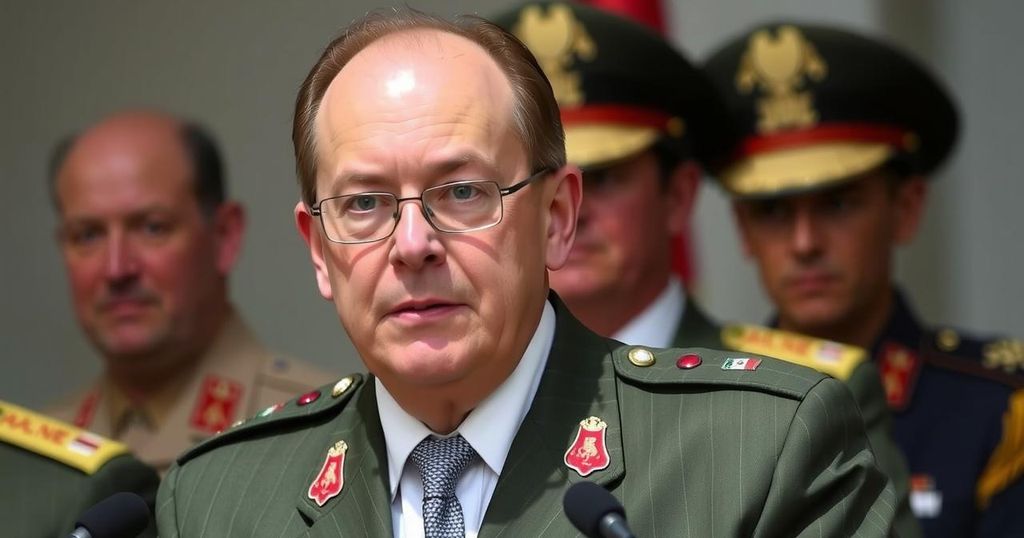General Joseph Aoun is emerging as Lebanon’s leading presidential candidate following the possible withdrawal of Hezbollah’s preferred candidate. French envoy Jean-Yves Le Drian has endorsed Aoun, contributing to optimism for a resolution to the ongoing political vacuum. Parliamentary discussions indicate a commitment to reach a consensus, enabling the election of a new president amid Lebanon’s prolonged political stalemate.
In a significant development regarding Lebanon’s presidential election, Army Chief General Joseph Aoun has emerged as the frontrunner, particularly as Hezbollah’s preferred candidate, Suleiman Frangieh, may withdraw from the race. The flurry of political activities preceding the parliamentary session, scheduled for Thursday, includes the visit of French envoy Jean-Yves Le Drian, who has advocated for Aoun’s candidacy without any preconditions. If General Aoun secures support from Hezbollah and the Amal Movement, he is projected to receive sufficient votes in parliament to avoid the need for a constitutional amendment, as he currently holds the position of army commander.
As Lebanon grapples with a presidential vacancy that has persisted since October 2022, hopes for a resolution are heightened. Prime Minister Najib Mikati expressed optimism about the impending election, stating that there is a real possibility that parliament members will consolidate their votes within a framework of consensus during the sessions. This development is especially notable given the previous failures to elect a candidate amid political fragmentation and opposition.
The political atmosphere leading up to the electoral session has shifted dramatically, reducing the number of viable presidential candidates from eleven to a select few. While figures such as Suleiman Frangieh and Jihad Azour remain prominent, others, including Samir Geagea, Elias Al-Bayssari, and Neemat Frem, maintain a presence in discussions. The response of the Maronite Archbishops Council has underscored the importance of unity and reform in electing a president who can lead the nation forward.
As the parliament convenes for its thirteenth electoral session amid intense negotiations, the assembly is expected to achieve the necessary quorum for voting. Observers anticipate renewed efforts for consensus among various political factions, reflecting a growing optimism that Lebanon may finally emerge from this prolonged political stalemate.
Lebanon has faced a political vacuum since former President Michel Aoun’s term concluded in October 2022, leaving the presidential office unfilled for over 26 months. The Lebanese parliament’s failure to elect a new president has been largely attributed to factional disagreements and divergent political interests. As political stakeholders engage in discussions around potential candidates, the candidacy of Army Chief General Joseph Aoun has gained traction, particularly with the anticipated withdrawal of Hezbollah’s candidate, Suleiman Frangieh. The involvement of international figures, notably the French envoy, indicates external interest in stabilizing Lebanon’s leadership amid ongoing political challenges and civil strife.
In conclusion, the potential election of General Joseph Aoun as Lebanon’s new president marks a pivotal moment for the nation, which has been mired in political turmoil for over two years. With support from influential political blocs and encouragement from international representatives, there exists a renewed sense of optimism regarding the consolidation of votes within the parliament. The forthcoming electoral session represents a crucial opportunity for Lebanese representatives to transcend previous deadlocks and meet the pressing demands of the country, fostering unity and reform in the process.
Original Source: www.arabnews.com






